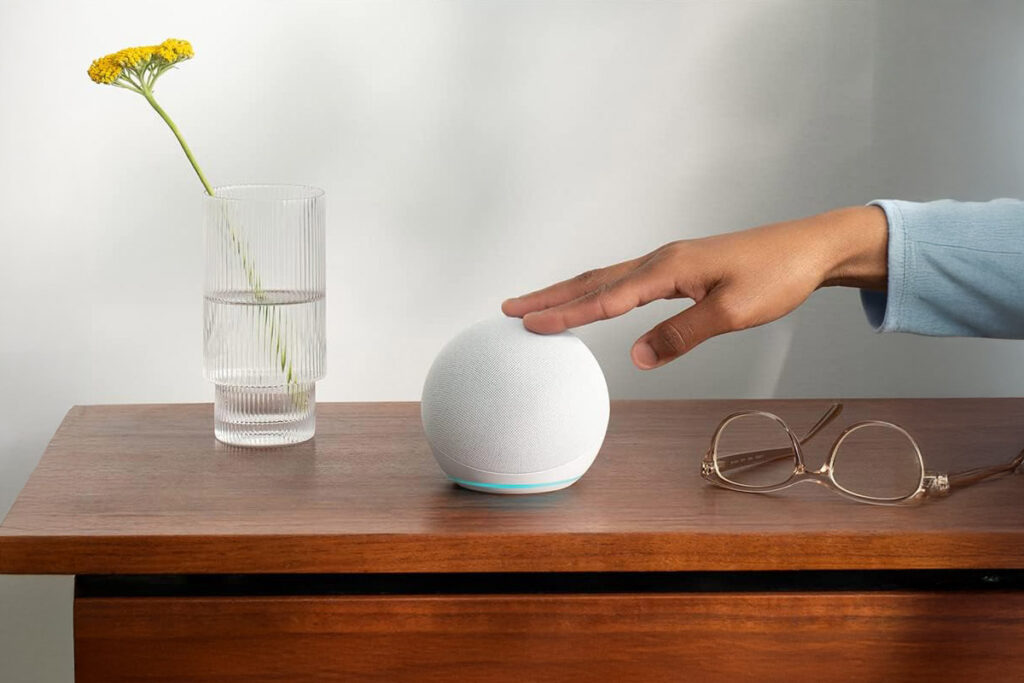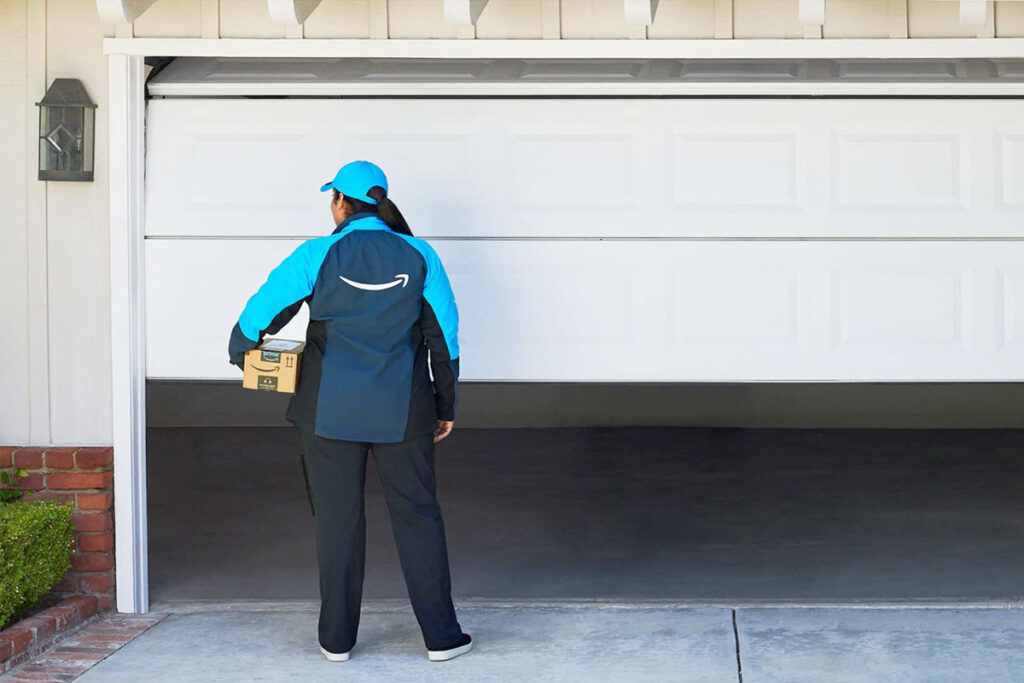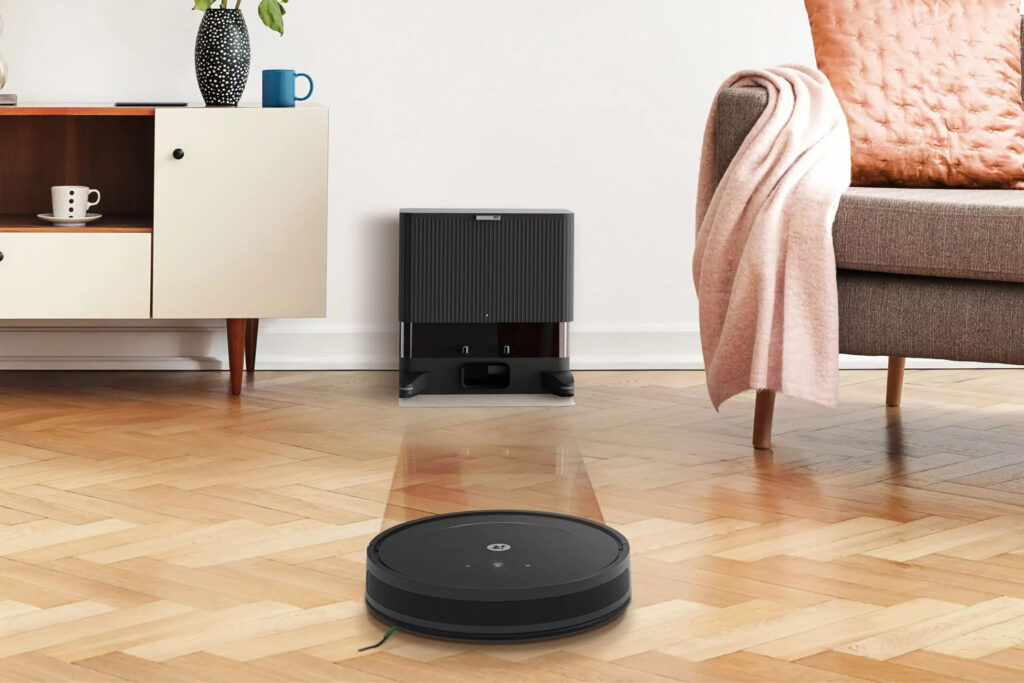The Alexa app is like a remote control for your smart Amazon devices, so we know how frustrating it can get when it acts up.
Alexa app acting slow and sluggish is a relatively common issue, and fixes are simple. So, read on and explore easy ways to speed up your Alexa app.
Key Points
- Weak internet, outdated software, and technical glitches are common reasons behind a slow Alexa app.
- Improving connectivity, updating software, and addressing technical issues may help.
- Maintaining your router, keeping interferences from other devices at bay, and optimizing your smartphone’s hard drive may help prevent the Alexa app from slowing down in the future– allowing for a better smart home experience.
Why is the Alexa App So Slow?

The Alexa App may be slow due to internet connectivity issues, outdated software, and technical glitches. It’s also possible that your whole phone is slow– possibly due to low storage space.
Let’s explore the factors slowing down the Alexa app in detail:
1. Internet Connection Issues
Your Alexa app is a voracious consumer of internet bandwidth. A study in the Journal of Librarianship and Information Science revealed that common Alexa inquiries, like weather checks and music streaming, guzzle a significant amount of internet bandwidth.
Now, imagine your Alexa app jostling for bandwidth amidst many other devices in your home.
A weak or unstable internet connection can indeed throttle the app's speed.
2. Outdated Software
The digital realm is ever-evolving, and so is the software powering your Alexa app. Unfortunately, if your app misses out on these software evolution cycles (updates), it could cause a performance lag.
Your Alexa device usually scouts for updates overnight, but it may sometimes lose its internet connection amidst the update, or a particular setting in your app may halt automatic updates.
Outdated software is a notorious speed-sapper.
3. Technical Glitches
Bugs or technical hitches could cripple your Alexa app's speed, rendering all the bandwidth and updates futile. A tiny bug could be the unseen anchor dragging your app's speed down.
4. Issues in your Mobile Phone
You might be looking at the wrong place. Maybe it’s not the Alexa app, but your phone is acting slow and sluggish.
Low storage space, uncleared cache files, too many apps running at once, and outdated system software are some of the possible reasons why your phone may be running slow– in turn, making the Alexa app run slow.
This broadly covers the possible reasons why your Alexa app may be so slow. Now, let’s explore some simple ways to get your Alexa app running smoothly again.
How to Speed Up Your Alexa App?

To speed up your Alexa app, ensure a stable and fast internet connection, close the background apps, update or reinstall the Alexa app, clear its cache and app data, or check and run system update on your phone.
Let’s explore in detail how you can speed up your Alexa app.
1. Improve Internet Connectivity:
Since internet connectivity issues are some of the most common reasons why your Alexa app may be loading slowly, it’s a good place to start. Here are a few things you can do to improve your internet performance:
- Bring Alexa Closer to the Router: Move your Alexa device closer to the router to bask in stronger Wi-Fi signals.
- Deploy Wi-Fi Boosters: If relocating isn’t feasible, place Wi-Fi boosters in signal-weak zones to amplify the Wi-Fi strength.
- Sidestep Wi-Fi Interference: Keep your Alexa device away from appliances like microwaves that can meddle with your Wi-Fi signal.
- Declutter your Wi-Fi Network: If too many devices are connected to the Wi-Fi at once, it can overload the router and lead to connectivity issues. So, disconnect all the unused devices from your Wi-Fi.
- Contact the Service Provider: If the Wi-Fi issues persist, contact your service provider.
2. Close Background Apps:

Too many apps running in the background can slow down the Alexa app and, in fact, impact the performance of other apps and your device overall as well. So, close unused apps to free up resources. This is generally how you do it on most mobile phones:
- Access the recent apps screen (usually by swiping up or pressing the recent apps button).
- Swipe up or down to close the apps you are not using.
3. Keep the Alexa App Up-to-date:
Keeping the Alexa app updated ensures you have the latest features and bug fixes, which can improve performance. To keep the Alexa app software up to date, enable automatic updates for hassle-free updates.
- Open the Google Play Store or Apple Store.
- Search for the Alexa app.
- If there's an update available, tap Update.
Alternatively, follow these steps to update the Alexa app on Android phones:
- Open the Google Play Store, navigate to the top right corner, and tap your profile icon.
- Now, select Manage apps and device.

- In the Updates Available section, select See details, find the Alexa app, and update it.
- Or else, simply tap Update all and let Google Play automatically update all the apps, along with the Alexa app (if an update is available for it).

On iPhones
- Navigate to the App Store > Profile icon on the top right.
- Scroll down to the list of installed apps on your iPhone.
- Find the Alexa app and tap the Update button next to it.
But if it shows the Open option instead of Update, that implies your Alexa app is already updated.
4. Clear Cache and Data:
Over time, the Alexa app may store cache and data, which could slow it down. Clearing cache and data can help to improve the app's performance. Here’s how to clear cache and data:
- Go to your phone settings.
- Navigate to Apps.

- Tap App Management.

- Find and select the Alexa app.

- Tap Storage usage.

- Now tap Clear Cache and Clear Data to clear each.

5. Reinstall the Alexa App:
If your Alexa app continues to be sluggish, you could reinstall it. Reinstalling the app helps get rid of minor bugs and glitches, and gives you a fresh start. To uninstall the Alexa app:
- Long press on the Alexa app icon and select Uninstall.
- Alternatively, navigate to your phone Settings > Apps > Alexa > Uninstall.
- Once it uninstalls, open the Google Play Store or Apple App Store and find the Alexa app.

- Now download and install it again.
- Open the newly installed Alexa app.
- Login with your Amazon credentials.
That should do the trick and speed up the Alexa app.
6. Check for Device Software Updates:
Sometimes, the performance of apps can be affected by the software of your device. So, make sure your device's software is updated.
To update your system software:
- Navigate to your phone Settings.
- Find and tap System Updates or Software Updates.
- If there's an update available, follow the on-screen instructions to update your device.
Tips for Maintaining a Snappy Alexa App Performance
Routine maintenance is your ally in keeping the Alexa app brisk and responsive. Simple practices like restarting your router, minimizing connected devices, and steering clear of Wi-Fi interference can go a long way. A little upkeep can fend off future slow-downs.
Here are some handy tips to keep the sluggishness at bay:
1. Restarting Your Router:

A simple restart every once in a while can refresh your network, solving minor connectivity issues.
Here’s how to restart your Wi-Fi router:
- Unplug the router's power cord.
- Wait for 30 seconds.
- Plug it back in and wait for the network to re-establish.
2. Minimizing Connected Devices:
Less traffic means more bandwidth for your Alexa app. So, make it a habit to disconnect unused devices from your Wi-Fi network to prevent overloading it. You should also schedule Wi-Fi usage of your devices to avoid network congestion.
3. Checking Your Internet Connectivity:
A slow or unstable internet connection can adversely affect the Alexa app's performance. So, regularly check your internet speed. If your usage is more than the capacity of your current internet plan, consider getting in touch with your Wi-Fi service provider and upgrading your internet plan if necessary.
4. Steering Clear of Wi-Fi Interference:
Appliances and other electronics can interfere with your Wi-Fi signal. To prevent that, keep your router and Alexa device away from potential interference sources like microwaves or cordless phones.
5. Optimizing your Mobile Phone’s Hard Drive:
If your mobile phone is low on space, it can make your phone laggy– thus making the Alexa app slow as well. Accumulated apps, too many photos and videos, and other space-heavy files may hog up your hard drive.
So, make it a habit to clean your phone’s storage space regularly. Here’s what you can do:
- Uninstall unused/rarely used apps.
- Try using the Lite versions of space-heavy apps.
- Get rid of duplicate and unnecessary photos and videos.
- Use Google Drive, One Drive, or other cloud storage to keep photos, videos, and other files, instead of the local storage.
- Keep your phone storage clean with the help of apps like CCleaner and Phone Cleaner.
FAQs:
How can I improve the responsiveness of my Alexa app?
What should I do if force stopping the Alexa app doesn't help?
Why is my Alexa app not loading?
Why does Alexa buffer so much?
Is there anything better than Alexa?
Why is Alexa getting hot?
Conclusion:
Now you know that poor internet connectivity, app glitches, outdated system software, and low storage space are some of the common factors slowing down your Alexa app. So, addressing these issues should speed it up.
By adopting these simple practices, you not only fix current issues but also prevent future hiccups. It's all about a smooth and snappy interaction with your Alexa app, paving the way for an efficient smart home ecosystem.
Continue reading:





